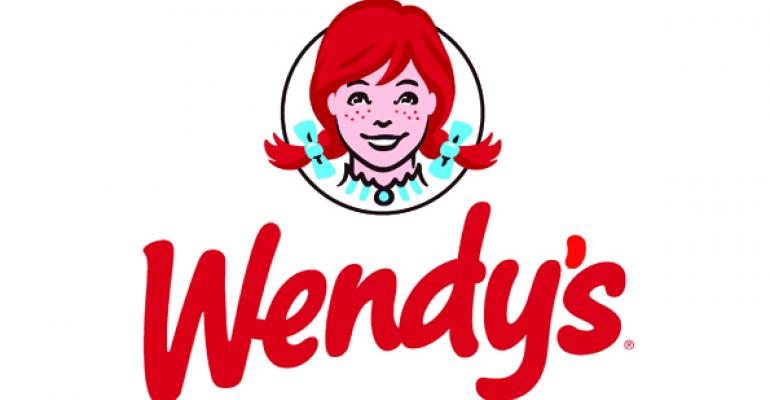 In the 1990s, Sam Hamra, a Springfield, Mo.-based Wendy’s franchisee, bought into a relatively new bakery-café chain called Panera Bread, and started developing the concept in Chicago.
In the 1990s, Sam Hamra, a Springfield, Mo.-based Wendy’s franchisee, bought into a relatively new bakery-café chain called Panera Bread, and started developing the concept in Chicago.
That’s when he realized that he needed help.
Hamra asked his son, Mike, to come on board. Mike Hamra didn’t have any restaurant experience — he was an attorney and had worked in the telecommunications industry. But he jumped at the opportunity to join the family business and help grow what his father had started.
“I’d grown up in the business,” Mike Hamra said. “It was a totally different industry than the telecommunications industry. There was something about it that intrigued me.”
The business became Hamra Enterprises, which today franchises Wendy’s, Panera Bread and Noodles & Company restaurants. Mike Hamra became CEO of the company in 2007, and Sam Hamra remains chairman.
In recent years, Mike Hamra has fulfilled his promise to grow the business: Hamra Enterprises recently acquired 25 Wendy’s restaurants in the Chicago area from the quick-service operator.
The acquisition, along with a 30-unit deal last year, has more than doubled the company’s Wendy’s holdings to 90 locations in multiple markets. Hamra Enterprises also operates 55 Panera Bread locations and 16 Noodles and Company units.
“We see ourselves as growing,” Mike Hamra said. “We’re doing that through acquisitions, especially in brands we currently do business in. There are good opportunities to grow and be involved in the brands.”
Refranchising efforts spread
Hamra Enterprises is one of many franchisees that have seen their growth explode in recent years amid a massive refranchising effort on the part of several franchisors.
McDonald’s Corp., Yum! Brands Inc., The Wendy’s Co., Jack in the Box Inc., Applebee’s, Jamba Inc., TGI Fridays and CKE Restaurants Holdings Inc., among others, have sold thousands of restaurants to operators. Many franchisees, flush with low-cost debt, thanks to low interest rates, are only too eager to take the opportunity to grow their businesses.
In Wendy’s case, the company has sold, or is in the process of selling, close to 1,000 company-owned locations to franchisees over the past three years, reducing its holdings from nearly 1,300 units in 2012 to approximately 300 locations. Wendy’s has more than 6,500 locations worldwide.
Investors generally prefer franchising because it’s more profitable for a company to sell the rights to operate a franchise than it is for a company to sell burgers or chicken to customers.
Still, Hamra sees an opportunity to keep growing in a business that’s been in his family for four decades.
“We understood the brand,” Hamra said. “We understood what it’s capable of. We believe in the brand, and believe in the long-term future of Wendy’s. It has differentiated itself from the competition, given some of its product rollouts and what they’re doing with the remodel program. It just made sense for us.”
Balancing the people equation
Hamra Enterprises has been with Wendy’s since the franchisee opened its first location in 1976. In the late 1990s, Hamra bought into Panera, first in Chicago and then in Boston.
Mike Hamra did not know much about restaurants. But he knew how to run a multi-state organization. He led a division for a telecommunications firm for years, with offices in multiple states.
“He’d always had an interest in having me involved in the business,” Mike Hamra said of his father. “He knew that if we were going to do anything outside the state of Missouri, he needed help doing that.”
Hamra said the people side of the business is what matters most in the restaurant industry, given the service element, and that it employs so many workers. He saw an opportunity to run his own business — one that recognized that importance.
“I wanted to create an organization that was unique in how it treated people,” Hamra said.
The people equation has been a challenge for the industry recently. Hiring has become more difficult, as rapid expansion by restaurants and a low unemployment rate has driven up the cost for workers.
“The challenges are in the hiring side,” Hamra said. “Finding people to work at those restaurants is a much bigger challenge than it has been in years past.”
He also said that it’s difficult to generate strong sales in today’s highly competitive restaurant industry. That makes it a challenge for an operator to find ways to generate profits and balance rising costs.
“There’s more competition in the marketplace today,” Hamra said. “The game is to be looking where value can be inserted in the business and for the guest. That’s become a bigger challenge today.”
But Hamra sees long, steady growth and more opportunities down the road. He gets the opportunity to make consistent decisions for the long term. And when he talks long term, he means very long term.
“We think about the business being a long-term business, one that’s generational,” he said. “A lot of decisions we make are in consideration for a long-term future. They’re not decisions with an exit plan in place, because we don’t have one. We think 25, to 50, to 75, to 100 years out.”
Contact Jonathan Maze at [email protected]
Follow him on Twitter: @jonathanmaze

